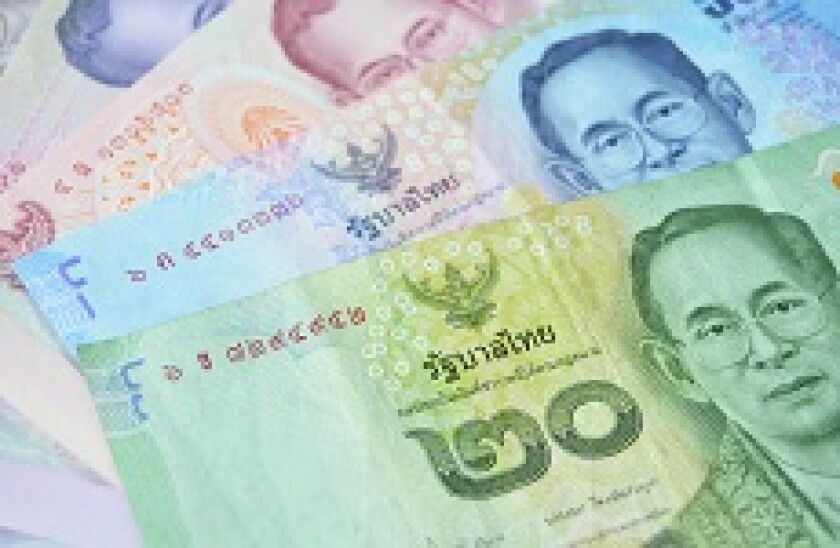The country has been keen to open up its market — increasing the issuance window from six to nine months and lowering the credit rating requirement for Mekong corporates to a local rating of BBB- instead of the international rating of A-/A3 required of other foreign corporates.
But its efforts could be in vain. Foreign issuers have until the end of March to apply for permission to issue Thai baht bonds — one of three approval deadlines in the year — but bankers and issuers do not expect many applications in 2015.
One reason is that market conditions have moved against foreign issuers benchmarked in dollars. A few years ago there were more foreign issuers coming to the market to take advantage of the dollar/baht cross currency swap (CCS). Korean credits such as Industrial Bank of Korea, Export-Import Bank of Korea and Woori Bank were particularly active.
But this year the rate looks unfavourable and this, combined with less liquidity in Thai bond markets, will keep issuers away, said a Thailand based debt banker. A borrower that had previously registered to issue Thai baht but never did echoed that sentiment.
The head of funding at a Korean issuer that has issued in baht said: “The main reason we decided to issue into Thai baht was to diversify our investor base. Also, the basis swap rate a few years ago between the US dollar and Thai baht was good.”
But although the swap rate and market liquidity look weaker than in previous years, a Thailand based head of debt capital markets and an official at Thailand’s ministry of finance said Korean issuers were likely to apply to keep their permissions to issue in baht just in case opportunities arose.
“I think we will see some Korean issuers that have issued in the past keep the option [of issuing] open," said the DCM head. "They will have a nine month window, and there may be some opportunities in there."
But international issuers from other parts of the world are proving less keen. “We have been talking to some US and European issuers, and they are saying it’s just not the time for them now,” he added.
Sweet spot
Despite waning interest on the part of issuers from developed nations, Thailand is finding a sweet spot with its Mekong neighbours, also known as the CLMV countries — Cambodia, Laos, Myanmar and Vietnam.
Both the banker and the MoF official expect to see applications from CLMV names. There is already some precedent for this, with the Lao Ministry of Finance issuing in December 2013 and October 2014, while in December 2014 Lao electricity company EDL Generation made its debut with a Bt6.5bn ($197m) triple tranche trade.
“We see more potential for issuers coming from [CLMV countries],” said the MoF official. “The Singapore market will always be a hub, but Thailand will be an option, maybe not a hub for the whole region.”
One driver is that CLMV countries need a lot of funding for infrastructure development, and Thailand can serve as the best source of that. “Most of Thailand's neighbours’ bond markets are still very small,” said Thiam Hee Ng, senior economist, economic research and regional co-operation department at Asian Development Bank (ADB).
Issuance in Thailand would allow the Indochina countries to issue in larger sizes than they could at home, while accessing an investor base that is comfortable with Mekong credits.
“Thai investors are more familiar with neighbouring countries’ names and there is an active retail investor base,” Ng added.
Investor familiarity with neighbouring names also means more favourable economics. Mekong issuers will be able to get tighter spreads by coming to Thailand rather than to other markets where investors are less familiar with the names and legal fees are higher.
“Greater Mekong countries don’t have many other options," said the DCM head. "For them even the baht to dollar swap has been more positive, because it’s more affordable to swap [from a bond] than [to take a] loan."
Slow steps ahead
“Myanmar will for sure not issue this year, but maybe in the next one to two years,” said the head of debt capital markets. “There are a lot of banks approaching them, and they want more time to look into it.”

